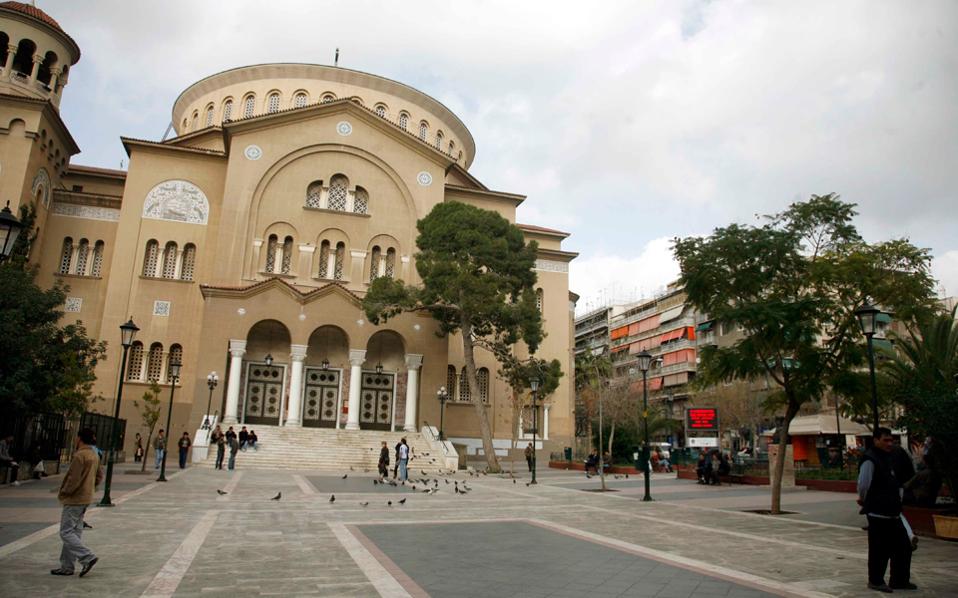Greek police investigating murky ties between document forgers and ISIS supporters

A covert investigation by the Greek Police (ELAS) in downtown Athens has revealed possible links between document forgers and supporters of the so-called Islamic State, or ISIS.
The investigation started in early June and led to the arrest in the neighborhoods of Aghios Panteleimonas and Kypseli of a group comprising Syrian, Moroccan and Algerian nationals who are accused of selling forged passports to undocumented migrants. Among the items confiscated during raids on their hideouts, officers found evidence linking the group to armed extremists in Syria and Iraq. The findings prompted the involvement of ELAS’s counterterrorism unit and the National Intelligence Service (EYP), while foreign intelligence agencies have also requested briefings on the investigation.
Well-informed sources have told Kathimerini that the arrest of the counterfeiters followed a tip-off about a Moroccan man who was forging identification cards and passports and smuggling refugees and migrants from Turkey through Greece into Western Europe. The ELAS informant described the suspect as a tall, well-built man in his 20s. He also told police that the suspect lived in a basement apartment in the neighborhood of Aghios Panteleimonas, where he regularly hosted undocumented migrants, as well as that he could be seen walking a small dog every day.
The stakeout
In early June, officers set up surveillance teams to stake out the Aghios Panteleimonas property. The “tall, well-built” man was first spotted on the afternoon of June 8 and was shadowed for 48 hours. During this period he was seen walking his dog, visiting a nearby cafe and meeting with a man who was later arrested, a 26-year-old Afghan.
Police raided the basement apartment on the morning of June 14 and arrested the main suspect, a 23-year-old Moroccan, as well as a 19-year-old Syrian and a 23-year-old Algerian, who originally claimed to be a Syrian asylum seeker but was later found to have been living in Greece for several years and to have a criminal record.
The first impression of the officers who carried out the raid was that they had discovered a forgery workshop. They seized a laptop, a high-tech printer, USB storage devices and a number of suspicious passports and driving licenses from countries such as Romania, Albania and France. Their subsequent investigation of the digital material and the suspects’ cell phones, however, soon revealed that they were onto something much bigger, which prompted the involvement of ELAS’s International Terrorism Division and EYP. The evidence that led the original investigators to believe that their suspects were involved in much more serious crimes included photographs of armed fighters, possibly ISIS members, and electronic boarding passes in the names of foreign nationals who had traveled from Greece to other European Union countries. Eight of the passports seized in the raid were also listed on the Schengen database as stolen or missing.
The discovery of this material was daunting to the Greek officers, while foreign security officials also started asking questions after news of the arrests was shared.
More damning evidence was to come to light, such as photographs of armed fighters, assault weapons and bags full of money on the phone of the 19-year-old Syrian. He has denied any links to Islamic State or any other armed groups in Syria or Iraq, while members of his family living in the UK, meanwhile, have submitted a request for his release from pretrial custody.
Transit countries
Greece, Turkey and Italy were key transit countries in 2015 for European-born Islamic State fighters, Europe’s policing agency, Europol, said in its recent annual report.
The agency estimated that around 5,000 European citizens have traveled to Syria and Iraq to join the jihadists. Most made their way there through Turkey, via the Balkan route and by sea from Greece and Italy.
Asked about this issue, ELAS officers said that since the closure of the northern Greek borders and the strengthening of NATO forces in the eastern Aegean, it is believed that extremists have been using the sea route between Libya and Italy.
The same sources said that the passage of European-born jihadists to Syria and Iraq has also dropped as ISIS’s grip on the two countries loosens.





